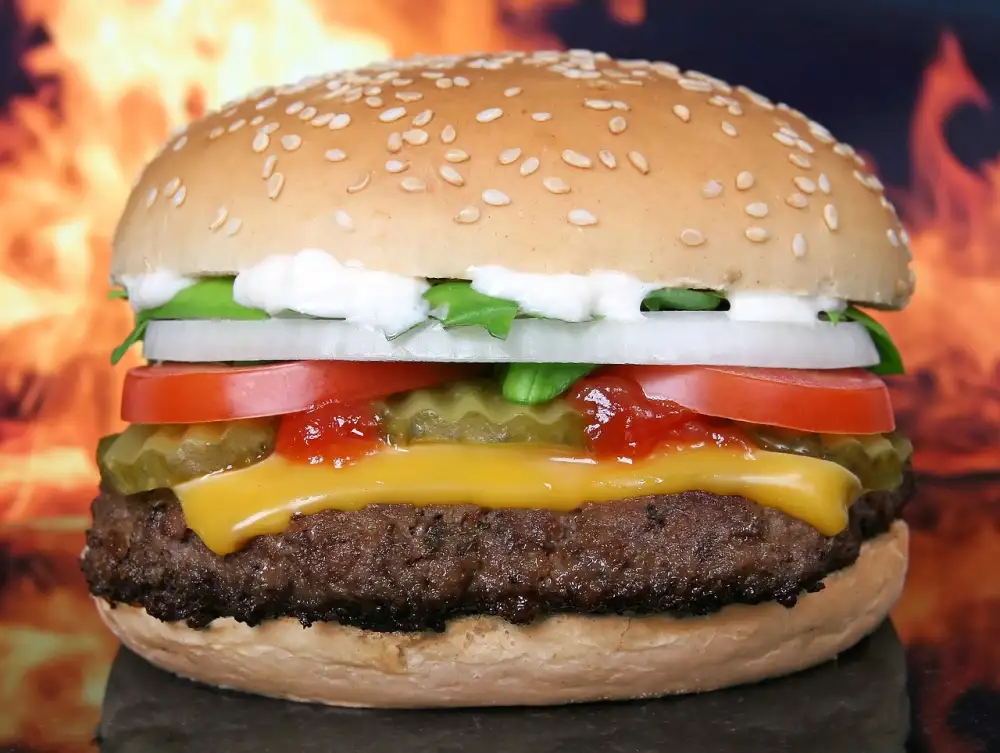Unveiling the Mystery: Why is Burger King Closed? Exploring the Possible Reasons for Temporary Shutdowns

Burger King, a renowned fast-food chain loved by millions worldwide, occasionally experiences temporary shutdowns that leave customers puzzled. These closures can be frustrating for loyal patrons who crave their signature flame-grilled burgers and crispy fries. However, there are several plausible reasons behind these closures that we will explore in this article. By understanding the potential causes, we can gain insight into why Burger King may temporarily shut its doors and eagerly await its reopening.
Lack of Staffing
One possible reason for temporary shutdowns of Burger King restaurants is a lack of staffing. In the fast-food industry, finding and retaining qualified employees can be challenging. High turnover rates and difficulty in recruiting new staff members can lead to a shortage of workers, which may result in the closure of certain locations.
Staff shortages can occur for various reasons. For instance, during peak hours or busy seasons, restaurants may struggle to meet the demand for quick service due to insufficient staff numbers. Additionally, unexpected employee absences or resignations can further exacerbate the staffing issue.
To maintain quality service and ensure customer satisfaction, Burger King may choose to temporarily close understaffed locations until they are able to hire and train new employees. This allows them to adequately meet customer demands while also providing sufficient time for recruitment efforts.
While it is an inconvenience for customers when their favorite Burger King location temporarily shuts down due to staffing issues, it is important to recognize that these closures are often necessary steps taken by the company to address operational challenges and maintain high standards of service.
Renovation or Maintenance
Another possible reason for temporary closures of Burger King restaurants is renovation or maintenance. Just like any other business, fast food chains need to periodically update their facilities and equipment to ensure smooth operations and provide a better experience for customers.
During renovations, Burger King may choose to temporarily close a location to carry out necessary repairs or upgrades. This could include anything from updating the interior decor, replacing outdated equipment, or even expanding the dining area to accommodate more customers.
Maintenance work, on the other hand, may involve routine tasks such as fixing plumbing issues, electrical repairs, or deep cleaning the kitchen and dining areas. These tasks are essential for maintaining hygiene standards and ensuring that the restaurant operates efficiently.
While these closures may inconvenience some customers in the short term, they are crucial for ensuring that Burger King maintains its high standards of quality and service. Renovations and maintenance work are typically planned in advance to minimize disruptions as much as possible.
It's worth noting that Burger King often communicates these closures in advance through various channels such as social media platforms or signage at the affected locations. This allows customers to plan accordingly and visit alternative nearby locations during the temporary closure.
Overall, renovation or maintenance closures are a common occurrence in the fast-food industry. They serve as a reminder that even beloved burger joints like Burger King must undergo periodic updates and repairs to continue delivering exceptional dining experiences.
Health and Safety Inspections
Health and Safety Inspections play a crucial role in ensuring the well-being of customers and employees. Burger King closures may occur temporarily for these inspections to take place. These inspections are conducted by local health authorities to ensure that the restaurant meets all health and safety standards. If any violations are found, the restaurant may be required to close until the issues are resolved. This temporary closure allows the management to address any concerns raised during the inspection and ensure that the restaurant is safe for operation. It is important to note that such closures are typically short-term, as Burger King takes these inspections seriously and works diligently to rectify any issues promptly.
Rebranding or Change in Ownership
Another possible reason for temporary closures of Burger King restaurants is rebranding or a change in ownership. Companies often undergo rebranding efforts to stay relevant and attract new customers. During this process, Burger King may decide to close its stores temporarily to implement new branding elements, such as updated logos, signage, and interior designs.
Similarly, a change in ownership can also result in temporary closures. When a new owner takes over a Burger King franchise, they may need time to assess the current operations, make necessary changes, and train their staff according to their own standards. This transition period could lead to temporary shutdowns until the new owner is ready to reopen the restaurant with their desired changes.
It's important to note that rebranding or change in ownership is not exclusive to Burger King but is common among many businesses in various industries. These closures are typically short-term and aimed at improving the overall customer experience and business performance.
Economic Factors
Economic factors play a significant role in the temporary closure of Burger King outlets. One primary reason is the decline in consumer spending during an economic downturn. When people tighten their belts and cut back on discretionary expenses, fast food chains like Burger King often experience a decrease in sales. This can lead to closures as the company tries to minimize losses.
Additionally, rising costs of ingredients and labor can also contribute to temporary shutdowns. As food prices increase or minimum wage laws change, it becomes more challenging for Burger King to maintain profitability. In some cases, the company may need to close certain locations temporarily until they can find ways to reduce costs or negotiate better deals with suppliers.
Furthermore, economic factors such as changes in rent prices or lease agreements can impact Burger King's decision to close temporarily. If a particular location's rent becomes unaffordable or if the lease agreement expires without a favorable renewal option, the company may choose to shut down the outlet temporarily until they can find a more cost-effective solution.
It is important to note that economic factors alone are not always responsible for temporary closures. Other reasons mentioned earlier, such as staffing issues or health inspections, can also be influenced by economic conditions indirectly. Nonetheless, understanding these economic factors helps shed light on why Burger King might temporarily close its doors in certain situations.
Legal Issues or Violations
One possible reason for the temporary closure of Burger King restaurants is legal issues or violations. In some cases, a restaurant may be forced to shut down temporarily due to non-compliance with local regulations or laws. This could include violations related to food safety, sanitation, employment practices, or licensing requirements.
For instance, if health department inspections reveal unsanitary conditions or improper handling of food, authorities may order the closure of the establishment until the issues are resolved. Similarly, if a restaurant is found to be in violation of labor laws, such as not providing proper wages or benefits to employees, it may face legal consequences that result in temporary closure.
Additionally, a restaurant may face legal issues related to intellectual property rights or trademark infringements. If Burger King is involved in any legal disputes regarding its branding or menu items, it could lead to temporary closures while the matters are resolved through legal channels.
It's important to note that these closures are typically temporary and aim to ensure compliance with regulations and laws. Once the necessary changes have been made and any penalties have been addressed, Burger King can reopen its doors to customers.
Overall, legal issues or violations can be a significant factor behind the temporary shutdowns of Burger King restaurants. The company must navigate these challenges responsibly and efficiently in order to maintain its reputation and continue serving its loyal customers.
Seasonal or Temporary Closure
Burger King, like many other restaurants, may experience seasonal or temporary closures. These closures are often due to factors such as low customer demand during certain times of the year or the need for a break in operations.
One reason for seasonal closure could be a decrease in foot traffic during holidays or vacation periods when people tend to travel or spend time with family and friends. During these times, it may not be financially viable for Burger King to remain open, leading to a temporary closure until business picks up again.
Additionally, Burger King may choose to close temporarily for maintenance purposes. This could involve deep cleaning of the restaurant, equipment repairs, or renovations to improve the dining experience. By closing temporarily, Burger King can ensure that they provide a clean and well-maintained environment for their customers once they reopen.
Another factor contributing to temporary closures could be staffing issues. If there is a shortage of employees due to vacations, illness, or other unforeseen circumstances, Burger King may find it necessary to temporarily close until an adequate number of staff members can be recruited or existing staff can return.
It's important to note that seasonal or temporary closures are typically planned in advance and communicated through various channels such as social media, signage on the restaurant premises, and updates on their official website. Customers are usually informed about the duration of the closure and any alternative locations nearby where they can satisfy their cravings.
In conclusion, seasonal or temporary closures at Burger King can occur due to low customer demand during specific periods, maintenance requirements, staffing issues, and other operational considerations. These closures are typically planned in advance and aim to provide better service and maintain high standards when they reopen their doors.
In conclusion, the temporary closures of Burger King restaurants can be attributed to various factors. Lack of staffing, renovation or maintenance work, health and safety inspections, rebranding or change in ownership, economic factors, legal issues or violations, and seasonal or temporary closure are all potential reasons for these shutdowns.
It is important to note that these closures are typically temporary and aimed at improving the overall dining experience for customers. Burger King remains committed to providing high-quality food and service while ensuring the well-being of its staff and customers.
As a popular fast-food chain with a vast network of restaurants worldwide, Burger King strives to maintain its reputation as a reliable and customer-centric brand. Any temporary closures should be seen as necessary measures taken to uphold these standards rather than a cause for concern.
While it may be disappointing for fans of the flame-grilled burgers and signature Whoppers when their local Burger King temporarily shuts down, it is reassuring to know that these closures are often brief and serve a purpose in enhancing the overall dining experience.
As Burger King continues to adapt to changing market demands and industry standards, occasional closures may occur. However, customers can rest assured that their favorite fast-food chain will always strive to provide them with delicious meals in a safe and enjoyable environment.
So next time you see a "closed" sign on your local Burger King's door, remember that it's just a temporary setback in an ongoing effort to deliver exceptional food and service.
Published: 20. 02. 2024
Category: Food



